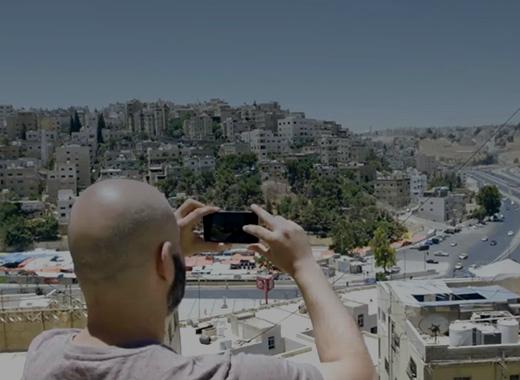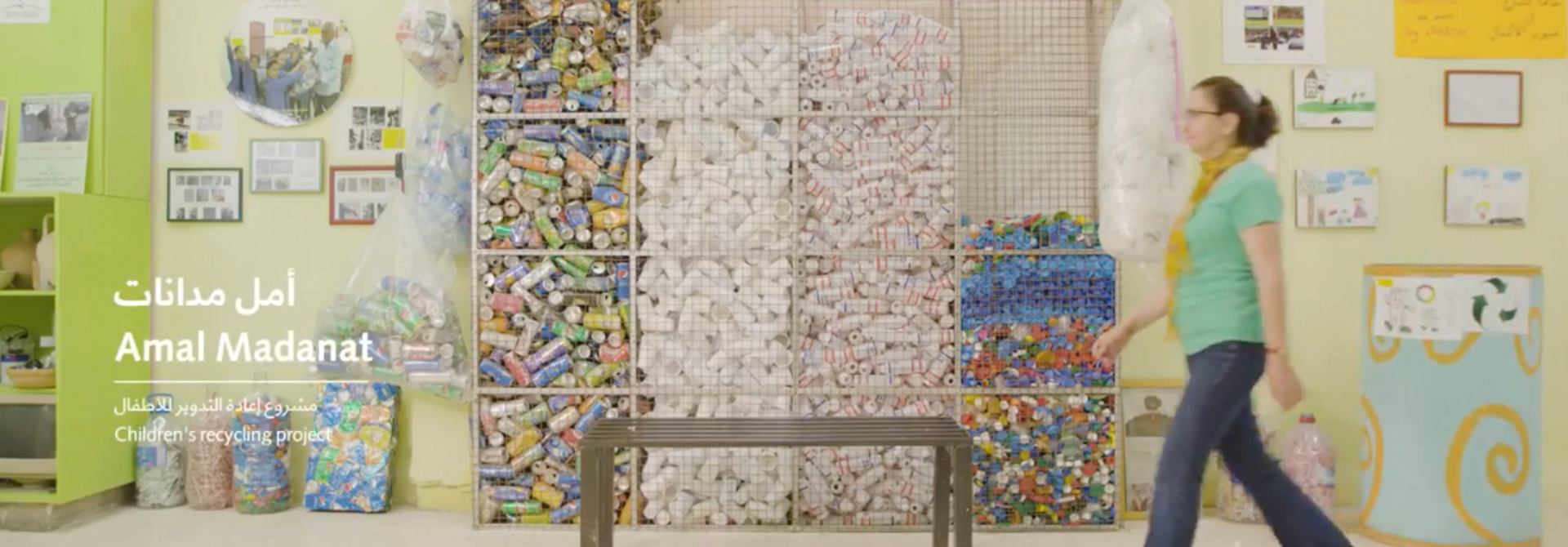

Design has the potential to shape communities and provide viable solutions to obstacles – even seemingly impossible ones like poverty, economic instability, and clean water – making daily life more comfortable, enjoyable, and aesthetically more pleasing. Human centered design is especially important because it creates potential for new realities and experiences that have not previously been imagined. It’s about understanding, observing human needs, and developing designs based on that.
Amman Design Week 2017’s design activist campaign aimed to build awareness on how design can be used as a tool for community development. The campaign features a video series highlighting design activism by people of all backgrounds, and the ways in which design can move communities. The series demonstrates the remarkable power of design in effecting measurable social and developmental change.
In collaboration with Ma’an Nasel, graphic designer Ahmad Sabbagh collected data on the movement of city buses around Amman and was able to synthesize the data into a cohesive and comprehensive bus-map that simplified the complicated geography of Amman into a single graphic. A feat in its own, this bus map serves as the beginning of a conversation about the need for a clear system of public transit in the country.
Amal Madanat started an initiative with the aim of producing zero waste by encouraging the community to recycle and educating kids to think twice before buying or throwing used materials.
Mohamad Zakaria was able to renovate a local park and transform it into a lively and active skatepark, with the assistance of crowdfunding campaign and the surrounding community. Catering to school children and the general public, this skatepark represents the power of participatory design, and the importance of accessible public spaces.
Noticing a need to repurpose waste into useful, decorative household items and furniture, Alaa Ziadeh established Ziadat4Recycling, an initiative that recycles trash into usable objects.At ADW2017’s Mobile MakerSpace, Rabee Zureikat will facilitate workshops on Nai making entirely from local resources. Rabee is the founder of Zikra Initiative, an entity that capitalizes on local knowledge and assets to create a self-sufficient and independent society.Lara Zureikat, the Associate Director of the Center for the Study of the Built Environment, developed a participatory design program that has impacted schools across the country, involving students in the development of their own educational environment.
